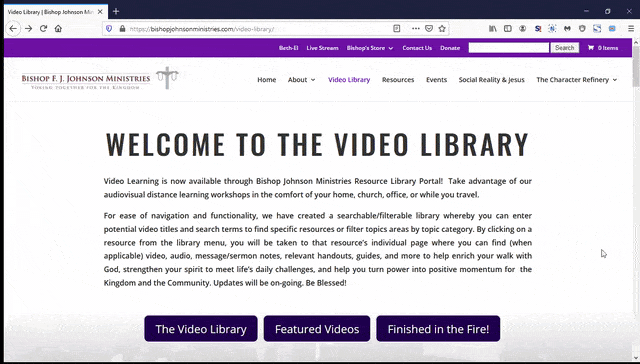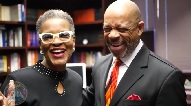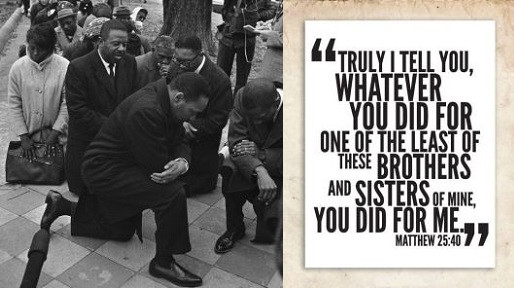Human Social Reality & Jesus
The Message, Life, and Self-Sacrifice of Jesus Christ is The Guide for a purpose-filled Christian life of truth and justice that honors God. Jesus' true messages about social hierarchy and what should be done for the poor, sick, and oppressed are whitewashed, sanitized, and distorted by religious discourses and indifferent societal structures. Page Navigation MenuOther ResourcesPlease Click the Purple/White Plus Symbol (+) to Reveal the Sub-Menus associated with each Main Topic Area. Clicking on a Given Sub-Menu Button/Item will automatically take you directly to that area on the page. Once the Sub-Menu is Opened the Plus Symbol (+) will turn into a Purple/White Minus (-) Symbol. Clicking the Minus (-) Symbol will close the Sub-Menu.
The Real Jesus
The Christ of the Oppressed, Poor, & Suffering
The Radical & Revolutionary Jesus of Nazareth
Jesus Christ was a person of color villainized, imprisoned, put on death-row, and ultimately murdered by a collaboration between the religious, business, governmental, and military ruling classes. His formal crimes were treason, as well as crimes against the Empire, but in reality, he was put to death because his message and works threatened the ruling elites’ position atop the status quo social hierarchy of greed, oppression, and evil.
In alignment with the radical and revolutionary tradition, He questioned, challenged, and rebuked the very nature of the social order declaring that, “The Last Shall Be First and the First Shall Be Last” (Matt 20:16); that the poor, oppressed, sick, and suffering’s social misery should be put at the forefront of the agendas of the powerful; that the callousness and self-deemed importance of the religious elites resulted in people’s suffering and was a sin against God; that the quality of treatment to the marginalized and “least of these” would be seen as tantamount to how people treated Jesus (i.e. God Himself). He spoke that it was easier for a camel to go through the eye of a needle than the rich and those who hoard resources to enter the Kingdom of Heaven (Matt 19:24); and He told the rich to sell their possessions and give to the poor (Matt 19:21). More than anything, Jesus was murdered as an enemy of the State in order to silence the radical truths and social justice that He exemplified in His daily life and the potential power that His message had towards inspiring others to stand against the systems of oppression.
Jesus Christ of the Poor, Suffering, Oppressed, & ‘Least of These’
The manner in which the infant Jesus was born into the physical world mirrors the same manner in which vulnerable, poor children from oppressed and marginalized segments of society are born into the world; that is, as there was no room or space for Mary and Joseph in the Inn, so to there is no place for the poor and vulnerable in society. The oppressed are born into anti-life living conditions planned by the policies of indifference and systems of social misery.
In the first few years of his life, Jesus became a refugee along with His mother and father while they sought to escape the forces of death, slaughter, and State terror from the Roman Empire client King Herod. Refugees and the Oppressed in our society today flee similar terrors of Empire and are met by dehumanization and deemed “illegal” human-beings or criminals by the empty hearts of the powerful and socially blind. Socially blind people intentionally (or unintentionally) ignore the feelings, intentions, plight, and needs of people suffering and instead demonize them as threats to personal or community security.
Jesus and those He loved grew up in the shadow of Empire, military occupation, and the incessant promotion of the myths of Roman exceptionalism, Rome’s greatness, and supremacy. Jesus was not a Roman citizen and as such in His youth was undoubtedly forced to witness the non-reality based songs, messages, and Empire-affirming information campaigns common to the experience of any human being living in the wake of Imperial delusion, national-idolatry, and military occupation.
It is the context of the commonly espoused “Greatness of Rome” myth and an Empire soon to be in fatal collapse, that the life and message of Jesus electrifies the people who heard of His radical message and miraculous works.
The ministry of Jesus Christ focused on giving voice to the voiceless, healing the sick, bringing life back to those who were deemed dead or irrelevant, and elevating the poor and oppressed. What has happened to the applicability of Jesus’ message in these times that we live in? How and why has the institutional Christian Church forgotten the poor and the “least of these,” as well as demonized the oppressed? What would Jesus have to say about society’s idolatry of profit and capital over the people and community needs?
The Distortion of Christ, The Cross, & The Power of His Sacrifice
In a time where radical evils of Militarism, Racism, and Profit over People are ascendant forces of control, everything is distorted, bent, and mutilated to serve systemic greed, profit, violence and individualism. Regrettably, the message of Jesus and His sacrifice has suffered the same fate and been distorted by society’s ruling classes.
Within our American context, far too often mainstream Christendom has been seduced by materialism and the comfortability of sanitized Christian discourse to transform Jesus into an innocuous “santa claus-like” fictional character that bears no resemblance to the Christ of the Gospel. Instead, like santa claus, this distortion of Jesus is a non-threatening figure who comes only with love, a smile, and bearing gifts. Such a caricature of Jesus of Nazareth has no critique of the status quo, structural systems of oppression, social policies, or religious institutions. The true Christ of the Gospel tells us a different story — one of power and clear prescriptions regarding what a follower of The Way should be doing and saying when so many people are suffering.
The power in the message, life, and self-sacrifice of Jesus is not a transformative story for those seeking to accumulate wealth, cars, clothes, and material objects. It was not written for the political and religious aristocracy that seek to hold tight to the reins of power and injustice while casting the people to the periphery. It wasn’t written for the indifferent masses that prefer to avert their gaze from the reality of people’s social misery. Instead, it was lived and written for the oppressed and their allies to give them hope and assurance that suffering, death, and the troubles of this world do not have the last word. They held to the truth that there is something eternal that no oppressive institutional policy or situation could ever take away from them, if they take up the Cross and follow Jesus daily by the example of sacrificing for the poor, sick, and suffering. In so doing, they are endowed with an imperishable prize that in the end transforms any violence or trouble faced on earth including death itself into victory (1 Cor 15:54). The trajectory being eternal love and fellowship with the Creator of all life who was willing to die for their eternal liberation. Read Isaiah 61:1-3 and Luke 4:18 which declare how Jesus was anointed to preach the gospel to the poor, heal the brokenhearted, and set the oppressed and captives free.
There is a reason why respectable men were called by God to kneel at the manger side of a newborn, innocent child who was unhoused, who had “no place,” and was wrapped in rugged grave clothes. There’s significance in the fact that they were “called by God” to present the child and His family with blessings, gifts, and resources. Kneeling at the feet of the vulnerable and the despised with blessings, care, and resources puts us in alignment with the message of Christ.
Liberation and Social Justice Theologies
There are wages to pay for dutifully following the life and message of Jesus Christ. Individuals, organizations, and movements that claim the true message of Jesus Christ will be subjected to the same destiny as Him. That is the fate of death. If not physical death, then those that truly follow the Radical Christ will certainly be subject to death to their character, reputation, career, and social standing. A follower of Christ’s message will be on the receiving end of State violence, group ostracism, demonization by mainstream religious elites, and endure various forms of social and civic suffering.
The rise of Liberation Theology in South America and the Global South from 1950 to 1991 was met by brutal force, repression, and the assassinations of hundreds of Jesuit priests, radical Catholics, Christian professors, and liberation-centered evangelical Christians particularly in Brazil, Columbia, El Salvador, and San Salvador. These men and women swiftly became enemies of the State, the religious elite, and the business elites; thus, had to be silenced for developing programs of social concern for the poor and oppressed.
Black Liberation Theologians and social activists have also been forced to face various forms of death themselves. James Cone, the founder of formal Black Liberation Theology, himself, was demonized as a heretic and apostate by mainstream celebrity Evangelicalism. For Cone, the Gospel was the hope of the penniless, jobless, marginalized, and despised, and the Cross a paradoxical religious symbol that inverts the world’s value system with the news that hope comes by way of defeat — that suffering and death do not have victory over the lives of oppressed when they believe in Jesus and live out His works.
Community matters
Community Crises & Global Catastrophes
Daily Complex Traumas as Continual Life Catastrophes
For lower socio-economic class African-Americans, Indigenous peoples, and other marginalized populations, each day often begins and ends in a state of perpetual crisis and grief. Poverty, living in a state of constant lack of resources, and chronic states of loss and pain create unbearable social misery whereby familial, community, and personal crises intersect and intensify each other like converging storms with no end in sight. It is under this weight of daily complex traumas and complex grief that African-Americans struggle and thrive.
Complex post-traumatic stress disorder (C-PTSD; also known as complex trauma disorder) is a psychological state of being that can develop in response to prolonged, repeated experiences of interpersonal and intrapersonal powerlessness in which an individual feels that they have little or no chance of escape. Poverty, permanent lack of resources, and chronic loss results in debilitating depression, anxieties, perceived powerlessness, and social alienation.
These catastrophic and systemic conditions are engineered and planned states of being by callous economic, educational, and health policies of mass incarceration, criminalization, ethnic cleansing, culturally insensitive medical practices, and the exploitation of workers combine to create mass profits for others. Relief and quality health care for marginalized communities comes only through confronting the policies and cultural context by which such policies are constructed and manifest.
On COVID-19 & Health Disparities
Long-standing systemic health and social inequities have put some members of minority groups at increased risk of getting COVID-19 or experiencing severe illness, regardless of age. Among some racial and ethnic minority groups, including non-Hispanic black persons, Hispanics and Latinos, and Indigenous People/Alaska Natives, there is a preponderance of evidence that suggests that extremely higher rates of hospitalization or death from COVID-19 than among non-Hispanic white persons.
As of July 12, 2020, age-adjusted hospitalization rates are highest among non-Hispanic American Indian or Alaska Native and non-Hispanic black persons, followed by Hispanic or Latino persons.
- Non-Hispanic American Indian or Alaska Native persons have a rate approximately 7 times that of non-Hispanic white persons,
- Non-Hispanic black persons have a rate approximately 8 times that of non-Hispanic white persons,
- Hispanic or Latino persons have a rate approximately 6 times that of non-Hispanic white persons.
Even during a pandemic, health care is not a guarantee or right in this country or affordable, testing is not readily available at minimal costs, and treatment for the virus still bankrupts the little money people have (if they have financial resources at all). COVID-19 exposed the pre-existing contradictions and hollowness of the country’s espoused ethos of “liberty and justice for all” as mere “window dressing” covering policies that maintain social misery instead of alleviating socially catastrophic conditions.
What type of health policies would Jesus layout to the political class and to community leaders if He were walking the earth today? Would He communicate that all people should have access health care, food, and resources? Would He fight for free healthcare and Medicare for all or profit-based health care? Would He desire for all people to be well and whole?
The Church Refuge
The Church as Refuge for the Oppressed
The Institutional Church’s Betrayal of the Message of Jesus Christ
Theologian Paul Tillich once presented a challenging view that all institutions, including the institutional church, often become inherently demonic as institutions are human organizations that tend toward power hierarchies, greed, profit, self-idolatry, legitimization of the status quo power, and indifference to the poor.
The mainstream church in America has been walking past the message of Jesus Christ, afraid to look it in the eyes much like the person that walks past and refuses to make eye contact with a homeless person in need on the street. Christ’s message has been distorted to serve the internal politics and desires within the walls of the church building while often forgetting the lives of people in pain in the surrounding communities. Profit, power politicking, and knowledge acquisition for knowledge acquisition’s sake, have become the dominant ethos in the mainstream church. These forces render the church as a sanitized, empty, and powerless space that provides neither social uplift for the oppressed nor true meaning and purpose to its congregation.
The role of the Church is to take up the Cross and follow Jesus! Until such a time when the churches remember the reality of Jesus’ life and message, their actions will merely serve the status quo and/or will make little impact on mitigating the social misery of people in crisis every day. We must remember that the Church is to be salt and light – having a preserving and catalyzing effect as a beacon of hope for a lost and dying world. This responsibility rests upon each of us. May we allow our light to shine forth brightly so that people can see our good works and glorify our Heavenly Father. (Matt 5:13-16)
The Profit Church vs. The People’s Church
It is common practice for the homeless to sleep up against the warm, locked doors of a business or church in times of cold. What does it mean for homeless women and children to be on the street while the church sanctuaries, bathrooms, rooms, kitchens, and spaces sit in silence behind locked doors at night? The prosperity doctrine that sells hollow pseudo-Christian teachings or sells Christ’s message as a way to achieve personal wealth is antithetical to the message of Christ.
The Physical vs. The Spiritual Church
One day, every physical church building will decay along with all of our earthly possessions and vanish in an instant. The value and investment into physical church buildings often pales in comparison to the investment put into the people’s lives in the surrounding community. Churches have become bureaucratic institutions with insular goals, preaching the gospel and freedom to those already saved, while the suffering, oppressed, and penniless are cut-off from Christ’s message of love and hope.
While Jesus taught within the confines of church (temple) walls, Jesus spent most of his time preaching out in the cities and communities where people were suffering. He went to places, houses, and interacted with people that society had cast-out as irredeemable. Just as suffering has no borders, the gospel cannot be chained (2 Tim 2:9). The Church must go beyond its physical space in order to meet the spiritual, mental, social and emotional needs of a lost and dying world. The Church can do some of its finest work in “Samaria” (i.e. with the despised peoples of the world).
The Role of the Church in Catastrophic Times
Ruling institutions like the government, the church, the “justice system,” the media, and educational institutions often give lip service to justice, virtue, and morality, while at the very same time continue to serve structures of status quo power or special interests in order to gain acceptance, money, status, and authority within society.
In catastrophic times, to resist radical evil and stand on the side of the oppressed is to guarantee that one will endure a life in which the dominant society would characterize as a failure; it guarantees one will be demonized as a heretic to the existing religious order; it comes with wages and cost to one’s reputation and career; and it comes with a heavy price for one’s economic and financial security.
True resistance to evil entails suffering and requires self-sacrifice. In catastrophic times, the Church must pay the wages and cost of true radical resistance if it is to truly serve as a place of refuge and rescue for the poor, comfortless, brokenhearted, afflicted, and oppressed. It must speak fervently, uncomfortable, righteous truths to centers of power. It must hold well-intentioned people and organizations to account in midst of fear and the uneasiness that comes with confronting the forces of supremacy, systemic racism, injustices, unrighteousness, and greed.











Page Guide
Page Navigation Menu